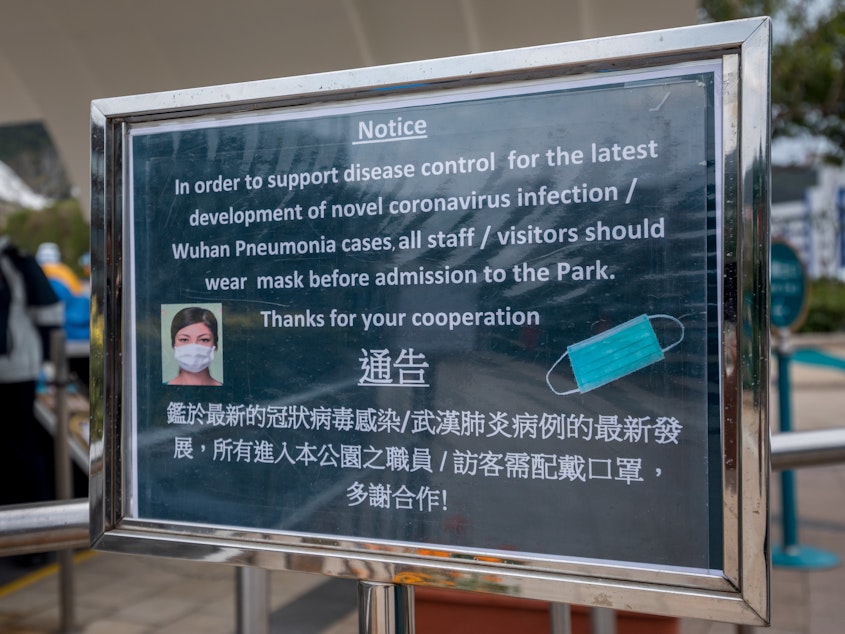Hong Kong Reports Its 1st Coronavirus Death

Hong Kong confirmed its first death from the novel coronavirus on Tuesday as health workers in the territory were on their second day of a walkout aimed at forcing closure of the border with mainland China — the epicenter of the epidemic.
A 39-year-old man who had visited Wuhan, China, where the virus first appeared, died at Hong Kong's Princess Margaret Hospital on Tuesday morning, the hospital confirmed.
The man, who had been to Wuhan on Jan. 21 and returned to Hong Kong aboard a high-speed train on Jan. 31, had unspecified underlying health issues, according to the Centre for Health Protection.
His death is only the second attributed to the new virus outside mainland China, where 425 people have died and more than 20,000 others have been infected, according to the latest government figures. On Sunday, a 44-year-old Chinese man from Wuhan died in the Philippines.
Hong Kong, which was hard hit by the outbreak of severe acute respiratory syndrome (SARS) in 2003, has stopped nearly all ground transportation links with the mainland, halted cross-border trains and halved the number of mainland originating flights. But the city's medical staff want the entire border sealed. Some 2,000 doctors and nurses went on strike Monday, and as many as 9,000 more could join the walkout on Tuesday.
Sponsored
Hong Kong's Hospital Authority said, "A large number of staff members are absent from duty," forcing it to curtail some services in the hospital, including some emergency services.
Hong Kong has been wracked by months of often-violent protests calling for greater freedom from China that have caused the financial hub's economy to slump. The virus outbreak threatens to do further damage.
However, the territory's response has also fueled further outrage among protesters, many of whom see Chief Executive Carrie Lam as taking orders from Beijing. She has stopped short of ordering the complete closing of the border, citing the "unique" situation of the "very close relationship" between people in the territory and mainland China.
The coronavirus death in Hong Kong comes shortly after China's leadership called the outbreak "a major test" of the country, according to Xinhua.
In a meeting late Monday of the Standing Committee of the Political Bureau of the Communist Party of China Central Committee, Chinese leader Xi Jinping reportedly warned that anyone who tried to dodge their responsibilities during the crisis would be punished.
Sponsored
"We have launched a people's war of prevention of the epidemic," Xi said, according to CCTV.
Members of the committee also called for a crackdown on illegal wildlife markets. The virus is thought to have originated in such a market.
In Wuhan, patients were being transferred to a hastily built 1,000-bed hospital that will act also as a de facto isolation facility. Another 1,500-bed facility was also under construction and expected to be ready within days.
Meanwhile, other countries have stepped up precautions to try to prevent or limit the number of coronavirus infections making it across their borders.
In Malaysia, a plane carrying 133 people from Wuhan landed in Kuala Lumpur where the passengers were screened and quarantined for 14 days, the longest period the virus is thought to incubate.
Sponsored
In Taiwan, three passengers aboard a flight that arrived from Wuhan on Monday were being treated for fever and sore throat, but it was not immediately known whether the symptoms were the result of the coronavirus. The remaining passengers on the flight, some 240 of them, were placed in a two-week quarantine. [Copyright 2020 NPR]



